Throughout the centenary of the First World War, the Friends of Historic Essex are running the Essex Great War Archive Project. One of the aims of the project is to collect First World War documents relating to Essex to add to the ERO collections to preserve them for current and future generations. One such document acquired recently is a scrapbook kept during the First World War by Minna Evangeline Bradhurst of Rivenhall Place, now catalogued as Acc. A14491 (you can read some more background on it here). Caroline Wallace, a History MA student from the University of Essex, has been researching the contents of the scrapbook, to see what it can tell us about the lives of Minna and her family during the First World War.
Ask most people to name a famous or influential person from Essex and they would most likely reel off a list including Jamie Oliver, Olly Murs, Ronnie O’Sullivan, possibly Dame Maggie Smith or even Boudicca (if you’re lucky!). It is possible that no one will mention Field Marshal Sir Evelyn Wood, veteran of Crimea, the Indian Mutiny, the Zulu and Boer Wars and commander of the Egyptian Army.
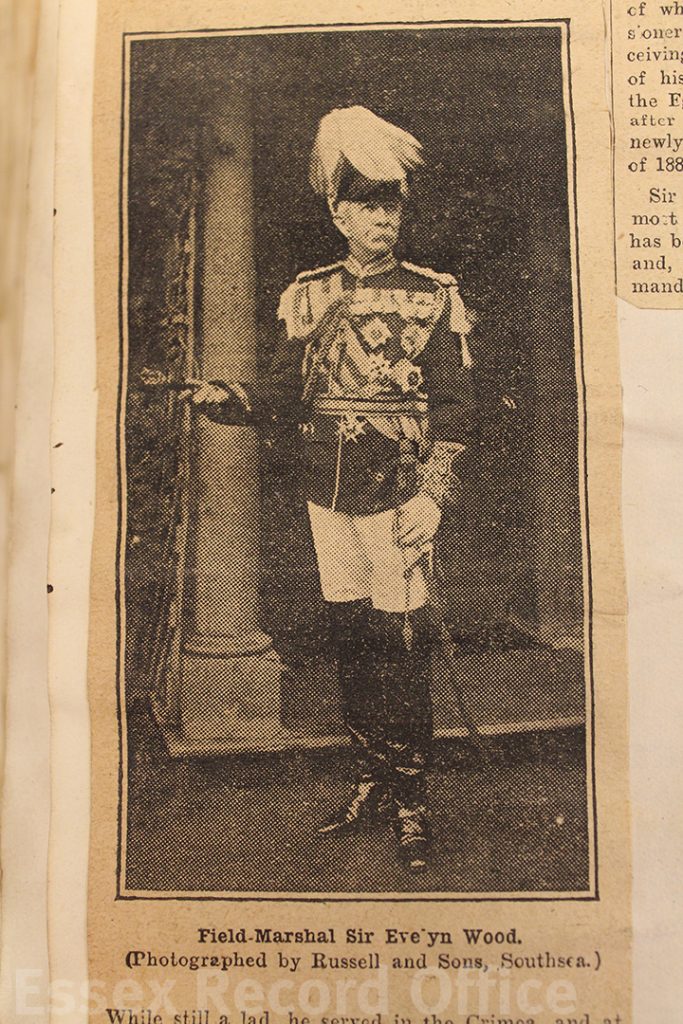
Photograph of Field Marshal Sir Evelyn Wood, one of the many cuttings about him in Minna Evangeline Bradhurst’s scrapbook
I first learned about him through the photographs, letters and newspaper cuttings about him in the scrapbook of his niece, Minna Evangeline Bradhurst, held at the Essex Record Office. It appears that Minna was incredibly proud of her Uncle, even keeping newspaper cartoons in which he was ridiculed.
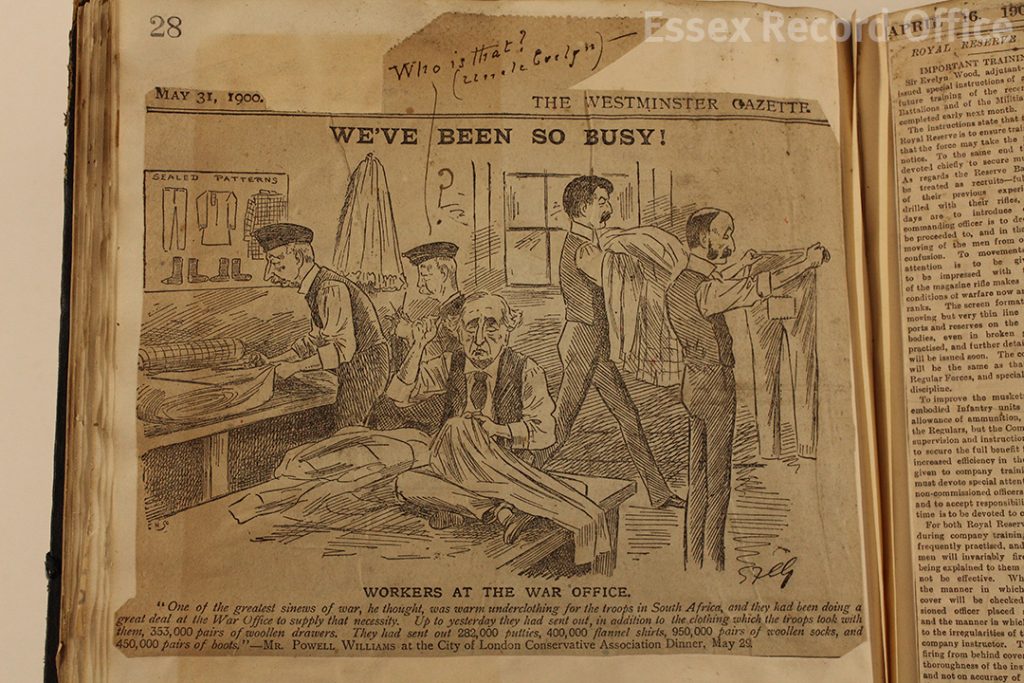
Cartoon from the Westminster Gazette of 31 May 1900 regarding clothing being sent to British troops in South Africa. Christine thought she recognised her uncle Sir Evelyn Wood, a senior army figure, depicted sewing army underwear.
Sir Evelyn was a man of his time; patriotic, loyal to the British Empire, and elaborately moustachioed. He was involved in many of the key British military campaigns throughout the second half of the nineteenth-century, and more than once was recommended for the Victoria Cross. He was also known for vanity and hypochondria, and was subject to frequent illnesses and accidents.
Born in Cressing near Braintree in 1838, Evelyn was one of 12 children of Revd Sir John and Emma Caroline Page Wood. He attended Marlborough College until the age of 14 in 1852, when he left to join the navy as a midshipman. By 1854 he was serving in the Crimea, where he was badly wounded and almost lost his left arm. Undeterred from military life, he joined the army, and was sent back to the Crimea, where almost straight away he contracted typhoid and pneumonia. His mother travelled to Scutari to bring him back to England, and nursed him back to health.
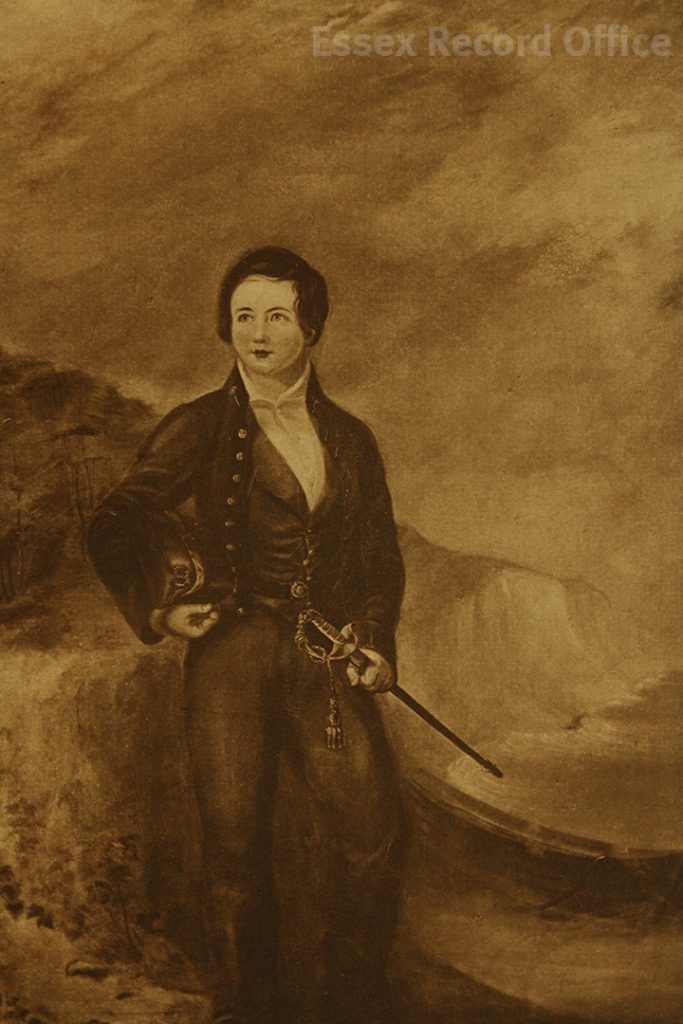
A teenage Evelyn Wood in his naval uniform, published on the flyleaf of his autobiographical ‘From Midshipman to Field Marshal’, published in 1906. The original painting was by Lady Wood.
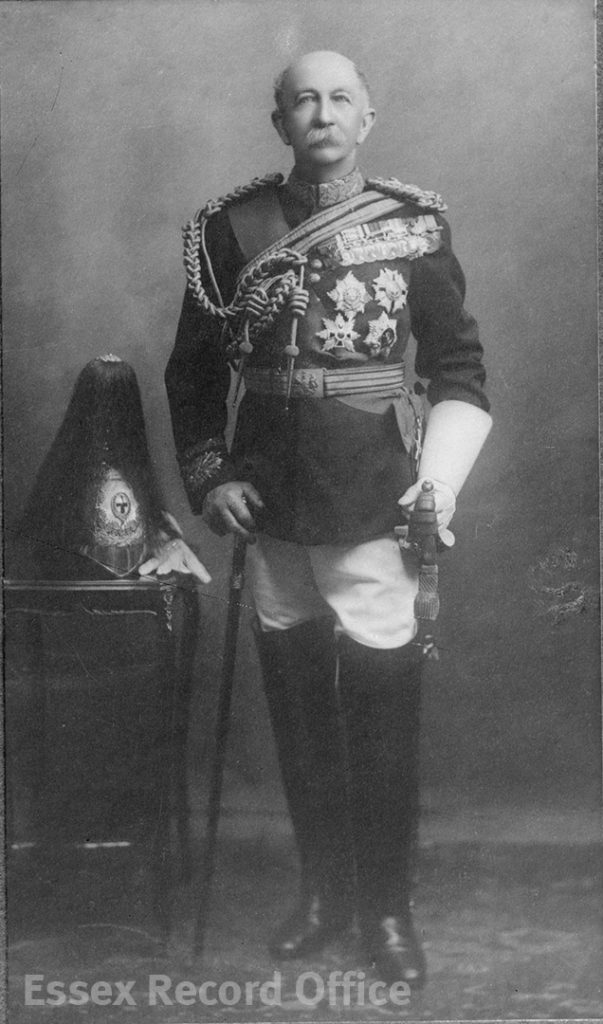
Sir Evelyn photographed in his later years by Fred Spalding
His next major trip abroad with the army was to India, where the British army was handling the Indian Rebellion. He was awarded a Victoria Cross for his actions in this campaign. It was during his time in India that he decided to ride a giraffe for a bet, when trying to dismount he fell, the giraffe kneed him in the chest and stood on his face causing some quite severe injuries.
For the next 20 years Wood held a succession of army posts; in Ireland during the Fenian disturbances, in West Africa as part of the Ashanti Expedition, during the Zulu War he commanded troops as Brigadier-General, was mentioned 14 times in dispatches during 1878-79, and took command of operations against the Boers in South Africa in 1881. He was largely responsible for brokering the peace deal with the Boers, and was much criticised in the British press for doing so. In 1882, he led a division of the Egyptian Expeditionary Force to deal with the Arabi Revolt, and was made Sirdar of the Egyptian Army for his efforts.
He was made Deputy Lieutenant of Essex in 1897 and awarded a Knighthood in 1901. He was the author of several books on military tactics, the Battle of Waterloo and the cavalry. During the First World War, he maintained a national presence by writing regular newspaper articles praising the war effort and supporting British troops across Europe – most of which appear to be included in his niece’s scrapbook. In honour of his outstanding contribution to the cause, a road was named after him in Cressing and a public house in Chelmsford, both of which remain today.
Upon his death in 1919, his obituary appeared in newspapers around the globe (again, many of them are in the scrapbook) and he is remembered with plaques in St. Paul’s Cathedral, Brecon Cathedral in Wales, and in Marlborough College Chapel. He is buried in the Military Cemetery in Aldershot.
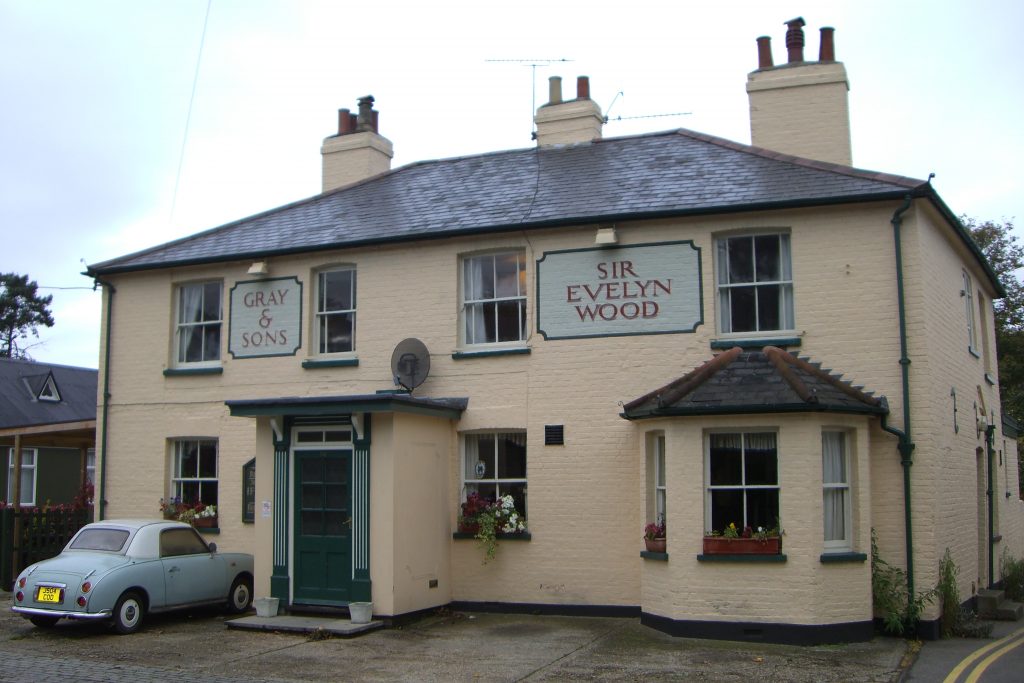
The Sir Evelyn Wood public house in Chelmsford. Reproduced with the kind permission of Grays & Sons.

Absolutely fascinating – I knew the pub but nothing about the man. But can I draw your attention to a misprint – the article mentions the “Arab Revolt” of 1882. This took place in Egypt led by a man called Orabi – he was known to the British as Arabi Pashi and the reference should be to the Arabi revolt.
Aha, thank you very much for pointing that out, we have corrected it now. Glad you found the post interesting!